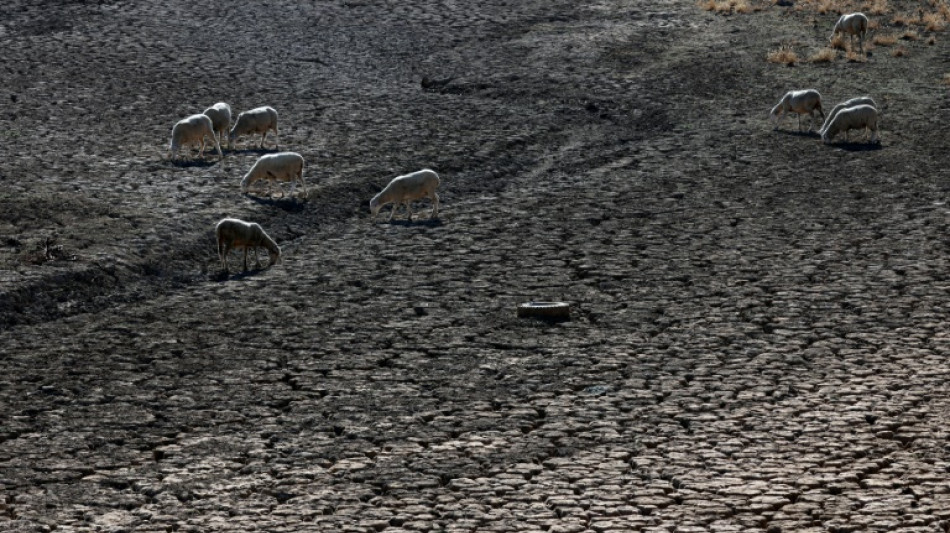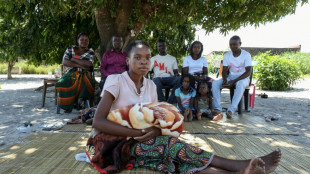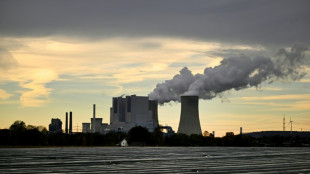
-
 Pedro double fires Chelsea into Champions League last 16, dumps out Napoli
Pedro double fires Chelsea into Champions League last 16, dumps out Napoli
-
US stocks move sideways, shruggging off low-key Fed meeting

-
 US capital Washington under fire after massive sewage leak
US capital Washington under fire after massive sewage leak
-
Anti-immigration protesters force climbdown in Sundance documentary

-
 US ambassador says no ICE patrols at Winter Olympics
US ambassador says no ICE patrols at Winter Olympics
-
Norway's Kristoffersen wins Schladming slalom

-
 Springsteen releases fiery ode to Minneapolis shooting victims
Springsteen releases fiery ode to Minneapolis shooting victims
-
Brady latest to blast Belichick Hall of Fame snub

-
 Trump battles Minneapolis shooting fallout as agents put on leave
Trump battles Minneapolis shooting fallout as agents put on leave
-
SpaceX eyes IPO timed to planet alignment and Musk birthday: report

-
 White House, Slovakia deny report on Trump's mental state
White House, Slovakia deny report on Trump's mental state
-
Iran vows to resist any US attack, insists ready for nuclear deal

-
 Colombia leader offers talks to end trade war with Ecuador
Colombia leader offers talks to end trade war with Ecuador
-
Former Masters champ Reed returning to PGA Tour from LIV

-
 US Fed holds interest rates steady, defying Trump pressure
US Fed holds interest rates steady, defying Trump pressure
-
Norway's McGrath tops first leg of Schladming slalom

-
 Iraq PM candidate Maliki denounces Trump's 'blatant' interference
Iraq PM candidate Maliki denounces Trump's 'blatant' interference
-
Neil Young gifts music to Greenland residents for stress relief

-
 Rubio upbeat on Venezuela cooperation but wields stick
Rubio upbeat on Venezuela cooperation but wields stick
-
'No. 1 fan': Rapper Minaj backs Trump

-
 Fear in Sicilian town as vast landslide risks widening
Fear in Sicilian town as vast landslide risks widening
-
'Forced disappearance' probe opened against Colombian cycling star Herrera

-
 Seifert, Santner give New Zealand consolation T20 win over India
Seifert, Santner give New Zealand consolation T20 win over India
-
King Charles III warns world 'going backwards' in climate fight

-
 Minneapolis activists track Trump's immigration enforcers
Minneapolis activists track Trump's immigration enforcers
-
Court orders Dutch to protect Caribbean island from climate change

-
 Sterling agrees Chelsea exit after troubled spell
Sterling agrees Chelsea exit after troubled spell
-
Rules-based trade with US is 'over': Canada central bank head

-
 Lucas Paqueta signs for Flamengo in record South American deal
Lucas Paqueta signs for Flamengo in record South American deal
-
Holocaust survivor urges German MPs to tackle resurgent antisemitism

-
 'Extraordinary' trove of ancient species found in China quarry
'Extraordinary' trove of ancient species found in China quarry
-
Villa's Tielemans ruled out for up to 10 weeks

-
 Google unveils AI tool probing mysteries of human genome
Google unveils AI tool probing mysteries of human genome
-
UK proposes to let websites refuse Google AI search

-
 'I wanted to die': survivors recount Mozambique flood terror
'I wanted to die': survivors recount Mozambique flood terror
-
Trump issues fierce warning to Minneapolis mayor over immigration

-
 Anglican church's first female leader confirmed at London service
Anglican church's first female leader confirmed at London service
-
Germany cuts growth forecast as recovery slower than hoped

-
 Amazon to cut 16,000 jobs worldwide
Amazon to cut 16,000 jobs worldwide
-
One dead, five injured in clashes between Colombia football fans

-
 Dollar halts descent, gold keeps climbing before Fed update
Dollar halts descent, gold keeps climbing before Fed update
-
US YouTuber IShowSpeed gains Ghanaian nationality at end of Africa tour

-
 Sweden plans to ban mobile phones in schools
Sweden plans to ban mobile phones in schools
-
Turkey football club faces probe over braids clip backing Syrian Kurds

-
 Deutsche Bank offices searched in money laundering probe
Deutsche Bank offices searched in money laundering probe
-
US embassy angers Danish veterans by removing flags

-
 Netherlands 'insufficiently' protects Caribbean island from climate change: court
Netherlands 'insufficiently' protects Caribbean island from climate change: court
-
Fury confirms April comeback fight against Makhmudov

-
 Susan Sarandon to be honoured at Spain's top film awards
Susan Sarandon to be honoured at Spain's top film awards
-
Trump says 'time running out' as Iran rejects talks amid 'threats'


Heat waves cost poor countries the most, exacerbating inequality
Heat waves, intensified by climate change, have cost the global economy trillions of dollars in the last 30 years, a study published Friday found, with poor countries paying the steepest price.
And those lopsided economic effects contribute to widening inequalities around the world, according to the research.
"The cost of extreme heat from climate change so far has been disproportionately borne by the countries and regions least culpable for global warming," Dartmouth College professor Justin Mankin, one of the authors of the study published in the journal Science Advances, told AFP. "And that's an insane tragedy."
"Climate change is playing out on a landscape of economic inequality, and it is acting to amplify that inequality," he said.
Periods of extreme heat cost the global economy about $16 trillion dollars between 1992 and 2013, the study calculated.
But while the richest countries have lost about 1.5 percent of their annual per capita GDPs dealing with heat waves, poorer countries have lost about 6.7 percent of their annual per capita GDPs.
The reason for that disparity is simple: poor countries are often situated closer to the tropics, where temperatures are warmer anyway. During heat waves, they become even hotter.
The study comes just days ahead of the start of the COP27 climate summit in Egypt, where the question of compensation for countries which are disproportionately vulnerable to but least responsible for climate change is expected to be one of the key topics.
The costs of heat waves come from several factors: effects on agriculture, strains on health systems, less productive workforces and physical damage to infrastructure, such as melting roads.
- 'Cost of inaction' -
Study researchers examined five days of weather considered extreme for a specific region each year.
"The general idea is to use variation in extreme heat, which is effectively randomly assigned to all these economic regions, and see the extent to which that accounts for variation in economic growth" in a given region, Mankin explained.
"Then the second part is to say, 'ok, how has human-caused warming influenced extreme heat?'" he added.
Despite these calculations, the study results almost certainly underestimate the true cost of extreme heat, according to the paper -- only studying five days per year does not reflect the increased frequency of such heat events, and not all potential costs were included.
Previous studies on the subject had focused on the costs of heat to specific sectors, though scientists say it is important to look at the price tag of climate change wholistically.
"You want to know what those costs are, so that you have a frame of reference against which to compare the cost of action," Mankin said, such as establishing cooling centers or installing air conditioners, versus "the cost of inaction."
"The dividends economically of responding to the five hottest days of the year could be quite great," he said.
But according to Mankin, the most important response is to reduce carbon emissions to slow down global warming at the source.
"We need to adapt to the climate we have now, and we also need to deeply invest in mitigation," he said.
K.Thomson--BTB


